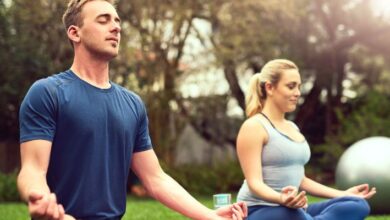Benefits of Physical Activity

Physical activity plays a crucial role in maintaining a healthy lifestyle. Engaging in regular exercise and physical movement brings about numerous benefits to both our physical and mental well-being. From enhancing cardiovascular health to boosting mood and reducing the risk of chronic diseases, the advantages of physical activity are abundant. In this article, we will explore the various benefits that physical activity offers and delve into the reasons why incorporating exercise into your daily routine is essential.
1. Introduction
In today’s sedentary lifestyle, where technology dominates our lives, physical activity often takes a backseat. However, incorporating regular exercise and movement into our daily routines can have significant positive effects on our overall health and well-being.
2. Improved Cardiovascular Health
Engaging in physical activity regularly helps improve cardiovascular health. It strengthens the heart muscle, enhances blood circulation, and reduces the risk of heart disease, high blood pressure, and stroke.
3. Weight Management and Body Composition
Physical activity plays a vital role in weight management and maintaining a healthy body composition. Regular exercise helps burn calories, build muscle mass, and increase metabolism, thereby assisting in weight loss or weight maintenance.
4. Enhanced Mental Well-being
Physical activity has a profound impact on mental well-being. Exercise stimulates the release of endorphins, commonly known as “feel-good” hormones, which elevate mood and reduce symptoms of anxiety and depression. Regular physical activity can also improve self-esteem and overall cognitive function.
5. Increased Strength and Flexibility
Engaging in strength training exercises and activities like yoga or Pilates can enhance muscular strength and flexibility. These exercises help tone and strengthen muscles, improve posture, and increase joint mobility.
6. Reduced Risk of Chronic Diseases
Regular physical activity is associated with a decreased risk of chronic diseases, such as diabetes, certain types of cancer, and osteoporosis. Exercise helps regulate blood sugar levels, strengthens the immune system, and improves bone density.
7. Boosted Immune System
Physical activity has been shown to boost the immune system, reducing the risk of common illnesses such as colds and flu. Regular exercise enhances the production of antibodies and white blood cells, helping the body fight off infections more effectively.
8. Improved Sleep Quality
Engaging in physical activity promotes better sleep quality. Regular exercise helps regulate sleep patterns, reduces insomnia symptoms, and enhances overall sleep duration and quality.
9. Enhanced Cognitive Function
Physical activity has a positive impact on cognitive function. Exercise increases blood flow to the brain, improving memory, focus, and concentration. It has also been linked to a reduced risk of cognitive decline and age-related neurological disorders.
10. Increased Energy Levels
Regular physical activity boosts energy levels and combats fatigue. Exercise improves oxygen and nutrient delivery to the body’s tissues, enhancing overall energy production and reducing feelings of tiredness.
11. Better Bone Health
Weight-bearing exercises, such as walking, jogging, or weightlifting, promote better bone health. Physical activity helps increase bone density and reduce the risk of osteoporosis, a condition characterized by weak and brittle bones.
12. Longevity and Aging Gracefully
Engaging in regular physical activity is associated with increased longevity and graceful aging. Exercise helps maintain physical function, mobility, and independence as we age, reducing the risk of age-related disabilities.
13. Social Interaction and Community Engagement
Participating in physical activities often provides opportunities for social interaction and community engagement. Joining group exercise classes, sports teams, or outdoor recreational activities can help foster social connections and a sense of belonging.
14. Stress Reduction and Enhanced Relaxation
Physical activity acts as a natural stress reliever. Exercise triggers the release of endorphins, which promote relaxation, reduce stress levels, and improve overall mental well-being.
15. Conclusion
In conclusion, physical activity offers a multitude of benefits for both our physical and mental well-being. From improving cardiovascular health and maintaining a healthy weight to boosting mood, reducing the risk of chronic diseases, and enhancing cognitive function, regular exercise should be an integral part of our daily lives.
By incorporating physical activity into our routines, we can lead healthier and more fulfilling lives, enjoying increased energy levels, better sleep quality, and improved overall longevity. So let’s take a step towards a more active lifestyle and reap the incredible benefits it has to offer.





